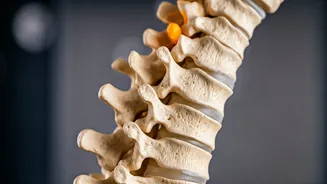Everyday Neck Strain
Neck stiffness is often triggered by everyday habits that place undue stress on the neck muscles. Prolonged periods spent looking at digital devices like
smartphones, tablets, or computers can lead to a forward head posture, which strains the neck and shoulders. Another common cause is poor posture while sitting or standing, whether at work, home, or during commutes. Incorrectly positioned pillows while sleeping can also contribute to neck stiffness. Furthermore, activities like driving, particularly in heavy traffic, can cause tense neck muscles due to constant looking and minor adjustments. Even seemingly harmless habits, such as carrying heavy bags on one shoulder or cradling a phone, can result in muscle imbalances and stiffness over time. These issues highlight the impact of modern lifestyles and the importance of being mindful of one's posture and movements to prevent and manage neck pain.
Routines for Relief
Implementing daily routines can significantly alleviate neck stiffness and improve comfort. Simple neck stretches, such as gently tilting the head to the sides or bringing the chin towards the chest, can help release tension. These stretches should be performed slowly and smoothly, without forcing any movement. Regular breaks throughout the day, especially for those who spend long hours sitting, are crucial. Getting up to walk around, stretch, and change positions can prevent muscle stiffness. Applying heat or cold packs to the neck can also provide relief. Heat can help relax tight muscles, while cold can reduce inflammation. Experiment to see which works best for your specific situation. Finally, incorporating gentle exercises, like shoulder rolls or chin tucks, strengthens neck muscles and improves posture. Consistency is key with these routines, making them a regular part of your daily activities to experience the most significant benefits.
Underlying Issues Explored
While daily habits often cause neck stiffness, it's essential to consider potential underlying medical issues. In some cases, neck pain might indicate a more serious condition. Muscle strains and sprains, often caused by sudden movements or injuries, can cause significant neck pain. Conditions like arthritis, specifically osteoarthritis, can affect the neck's joints, leading to stiffness and reduced movement. Moreover, conditions like spinal stenosis, where the spinal canal narrows and presses on the spinal cord or nerves, can trigger neck pain and stiffness. In rare instances, more severe conditions, such as meningitis or other infections, might present with neck stiffness alongside other symptoms. Persistent or worsening neck pain, accompanied by symptoms like fever, headache, or neurological changes (weakness, numbness, or tingling), should be promptly evaluated by a healthcare professional to identify the root cause and receive suitable treatment.












